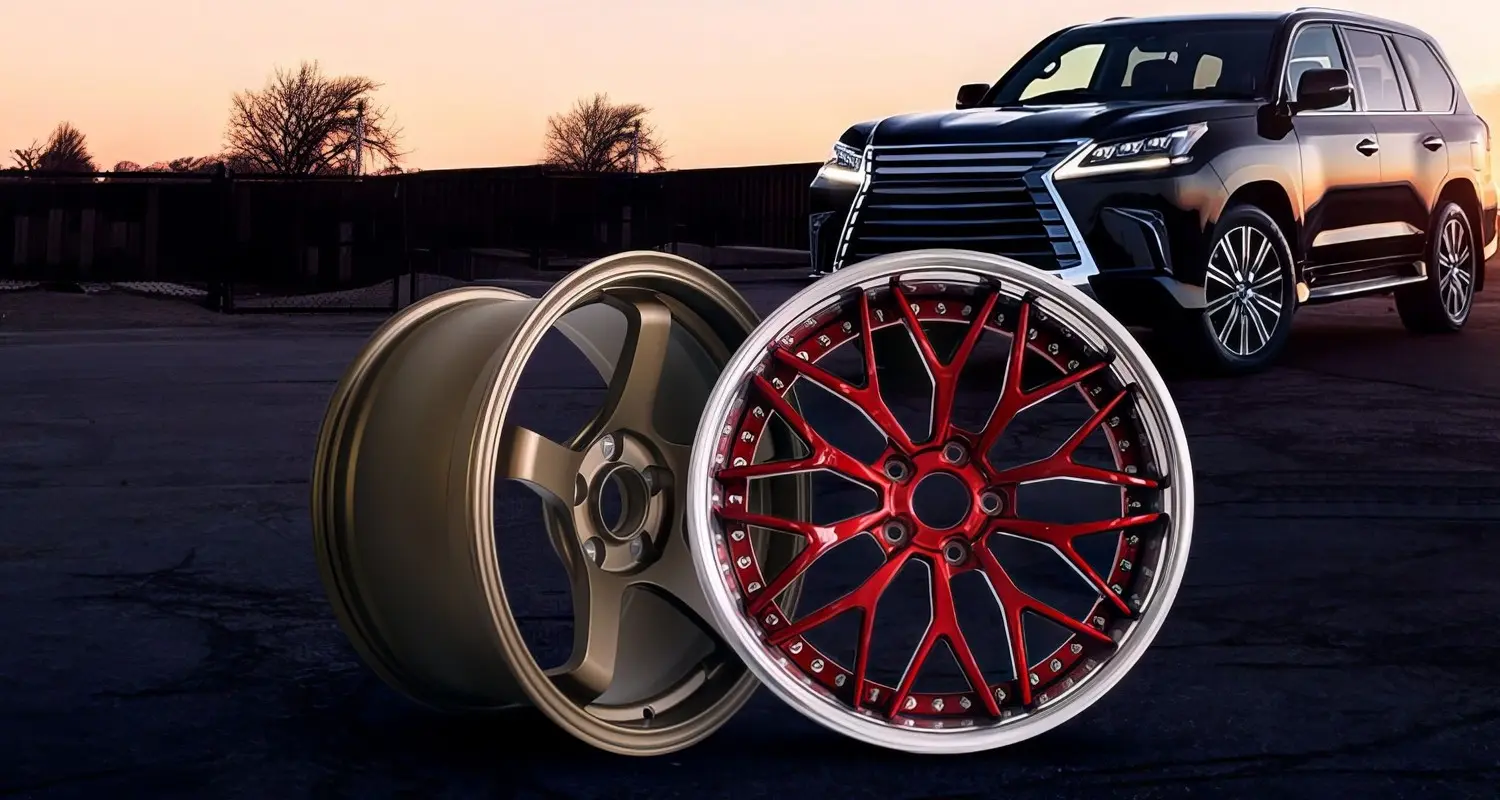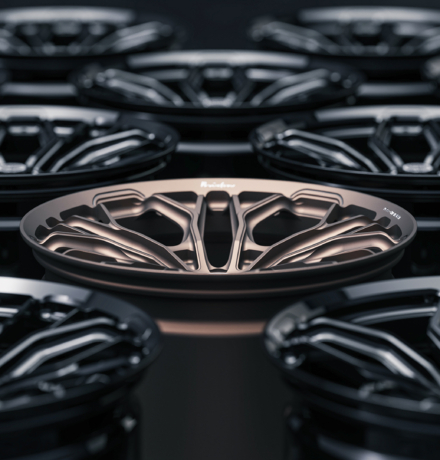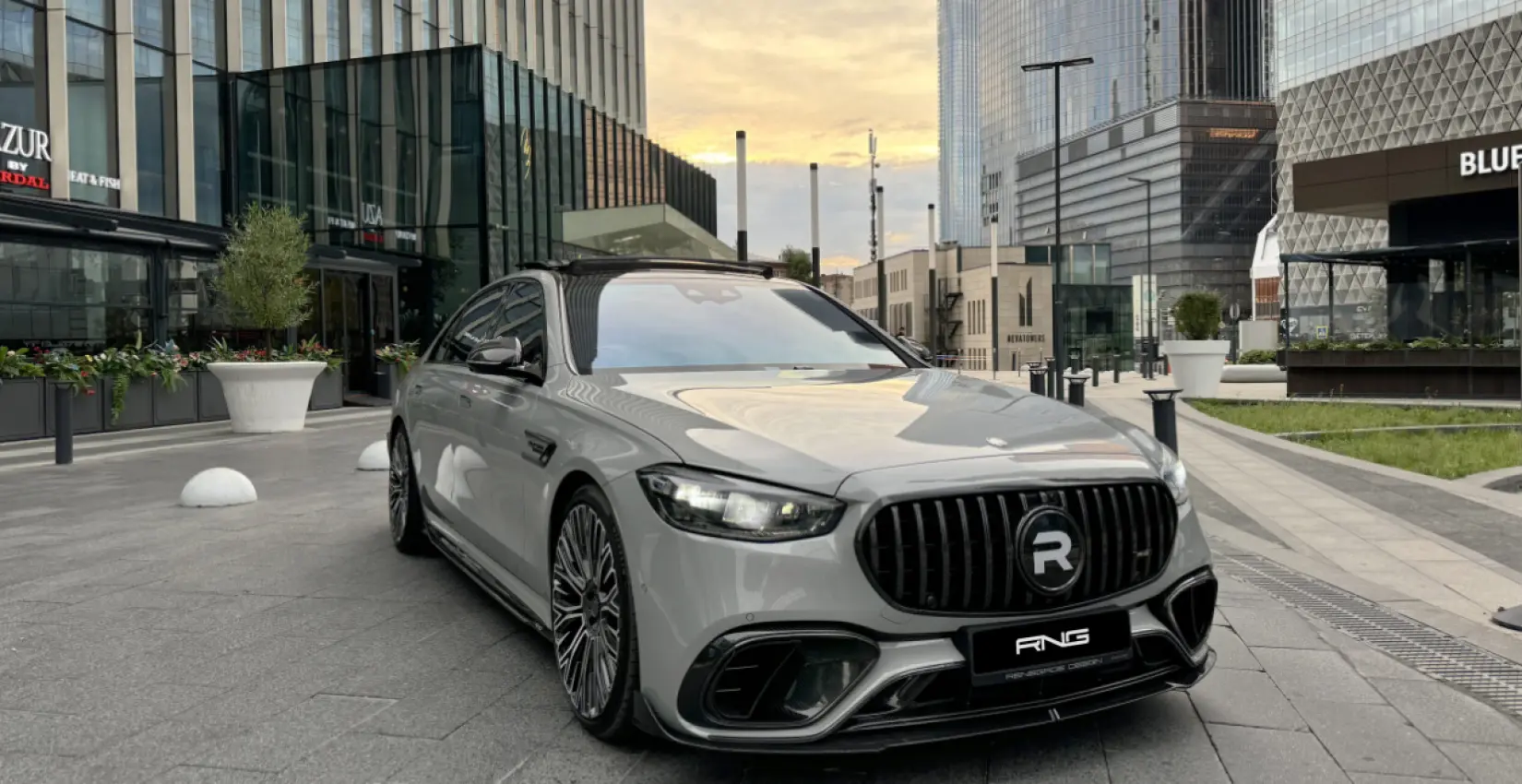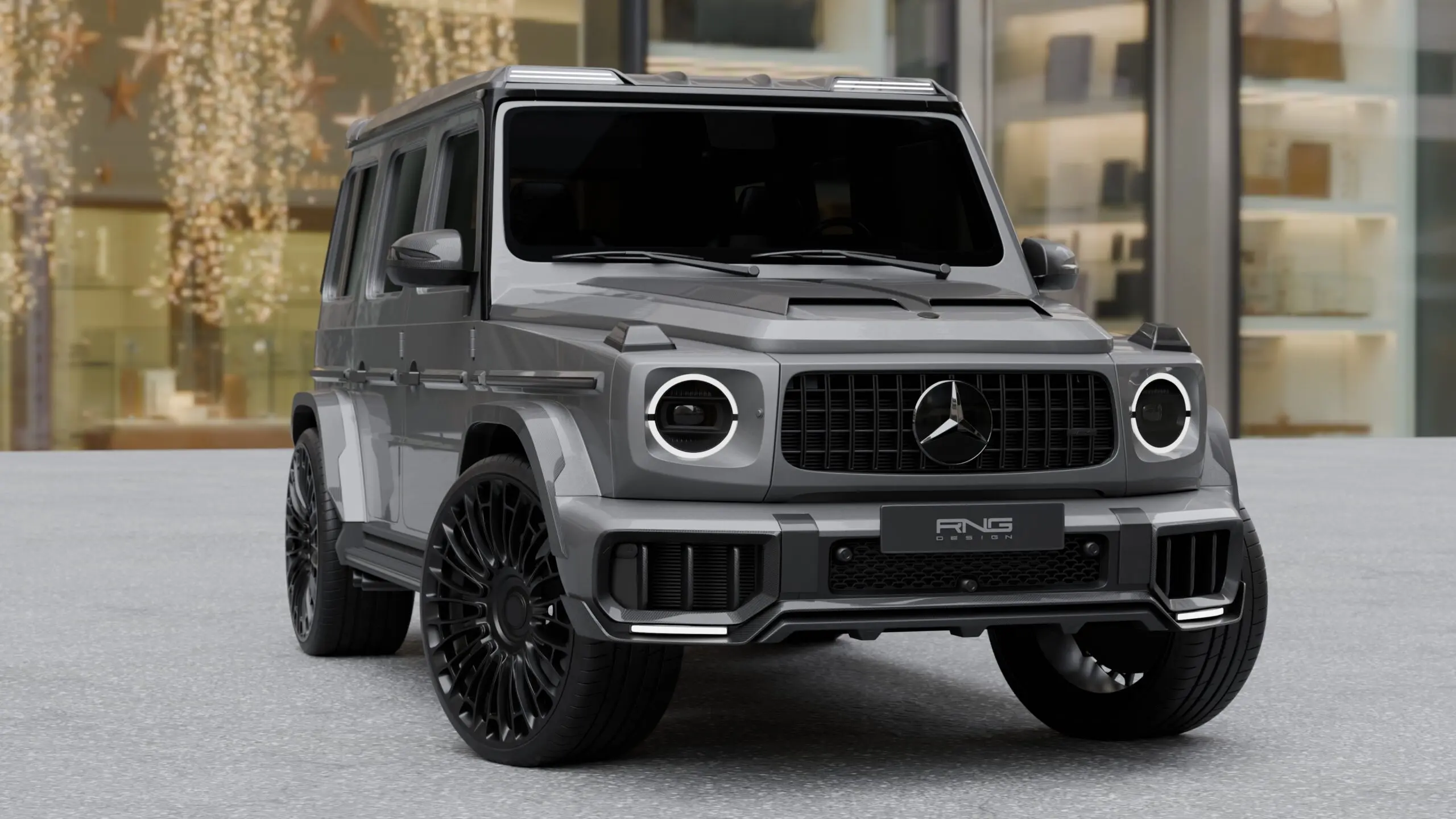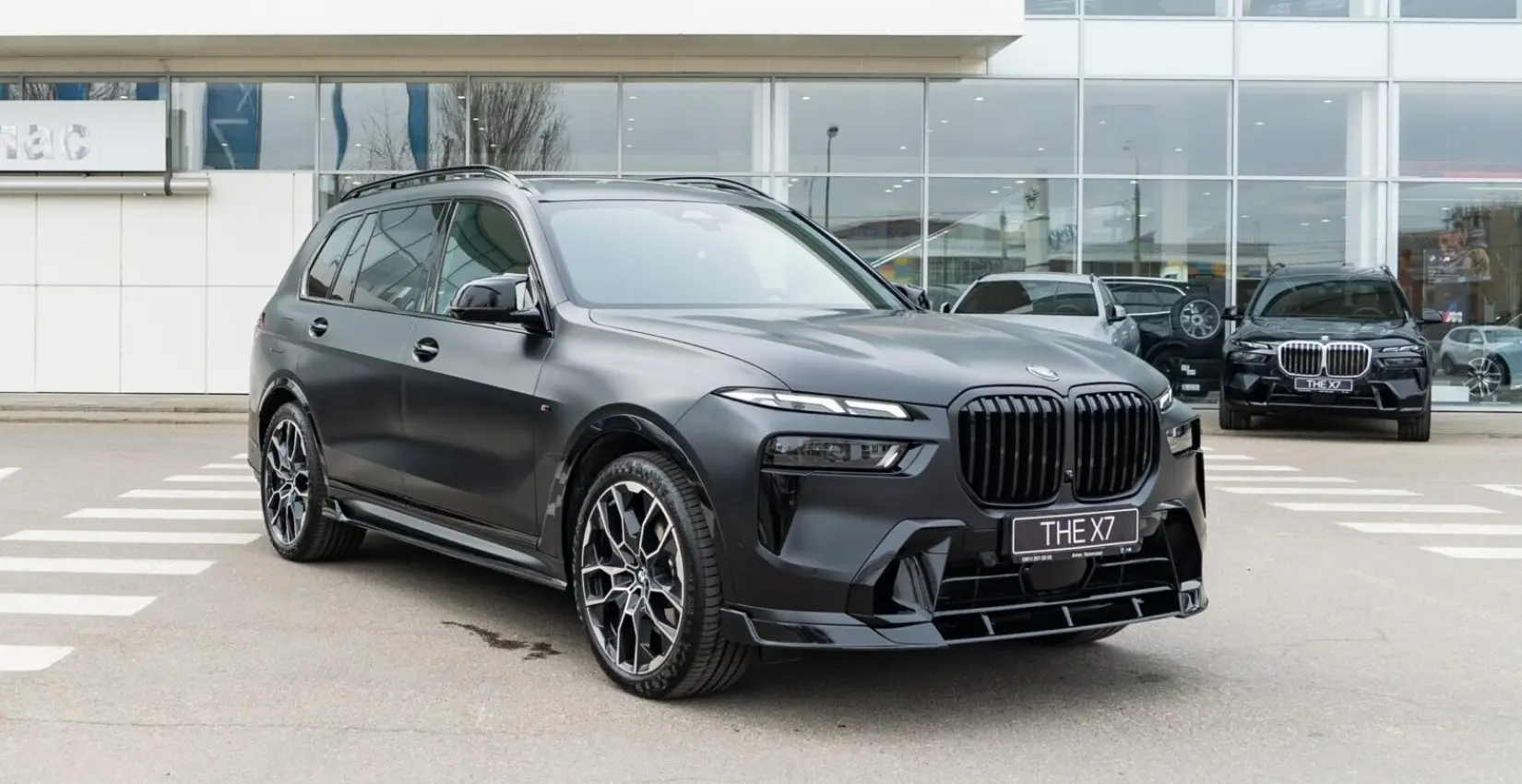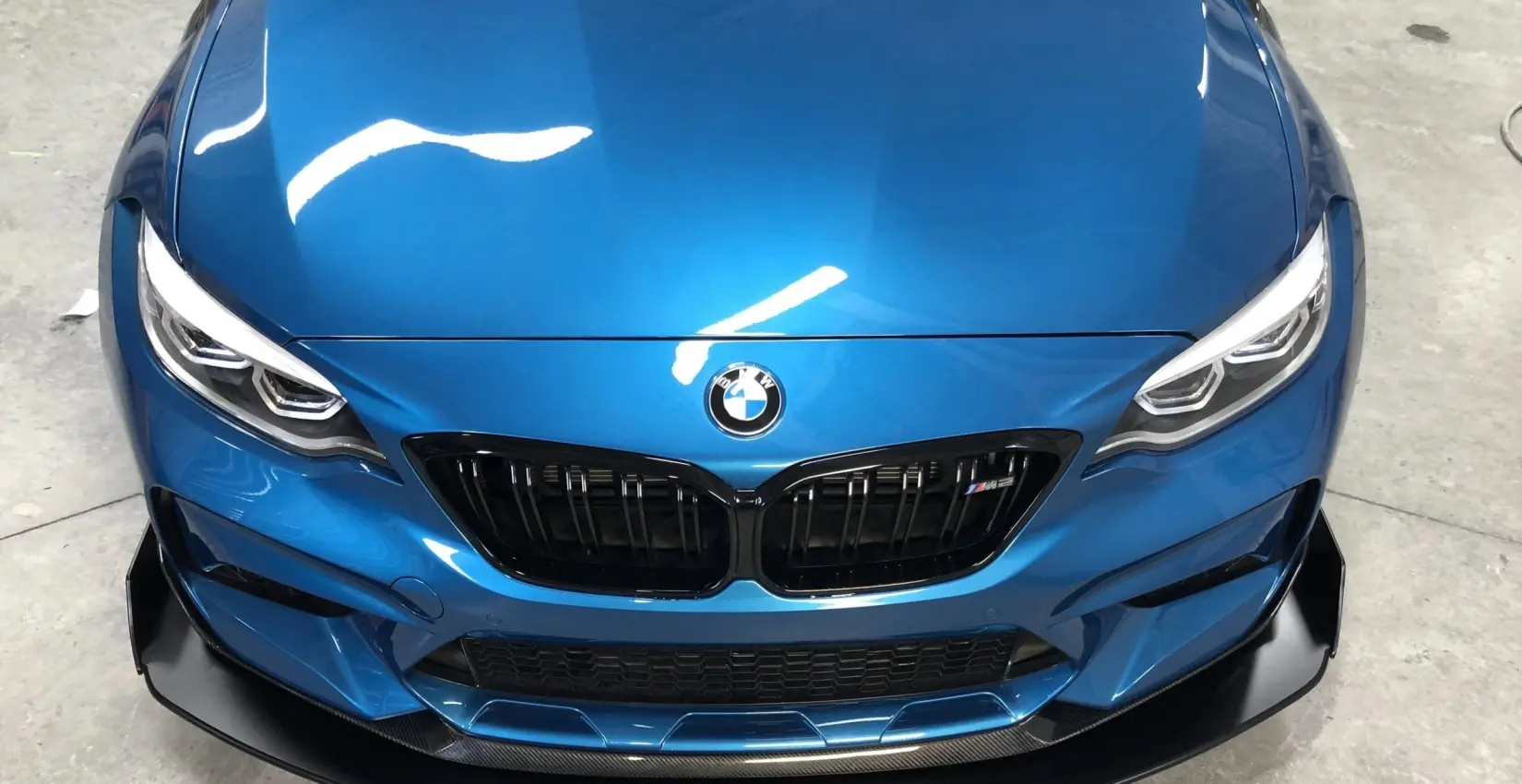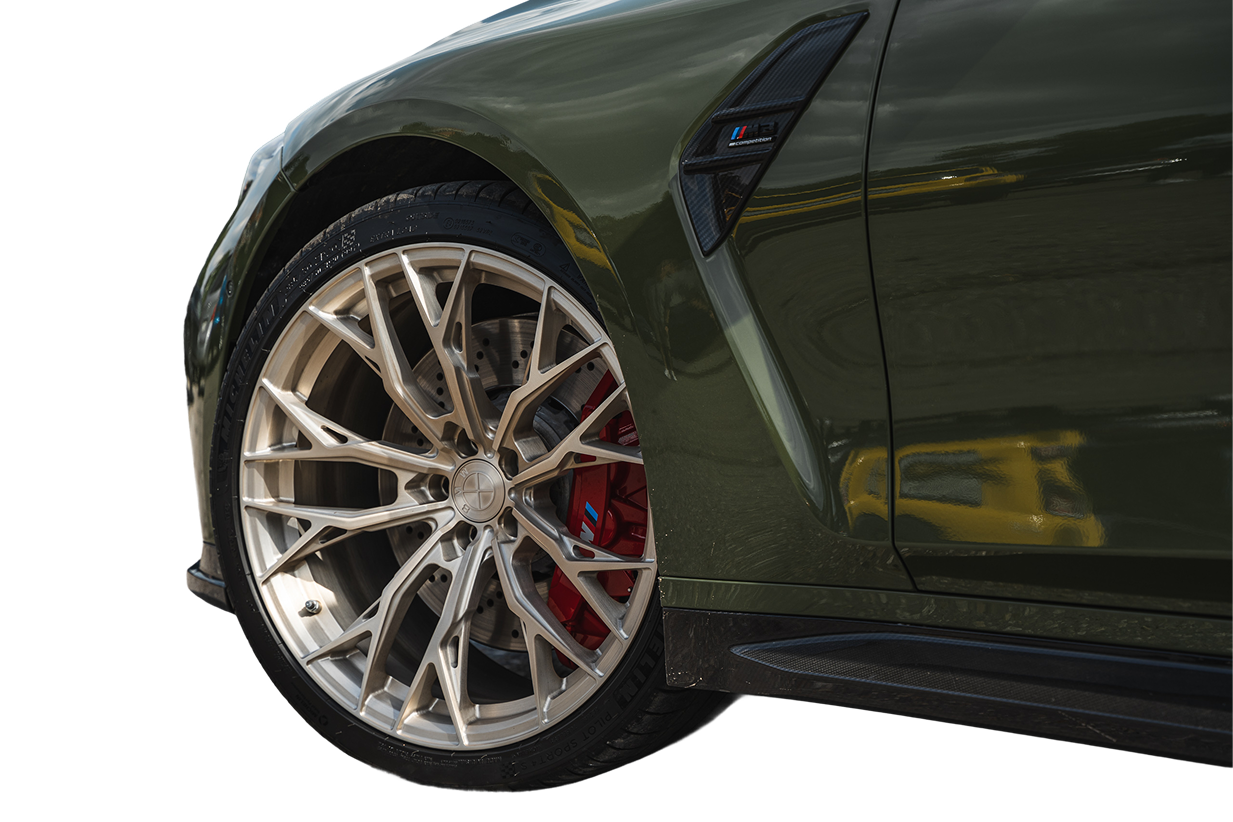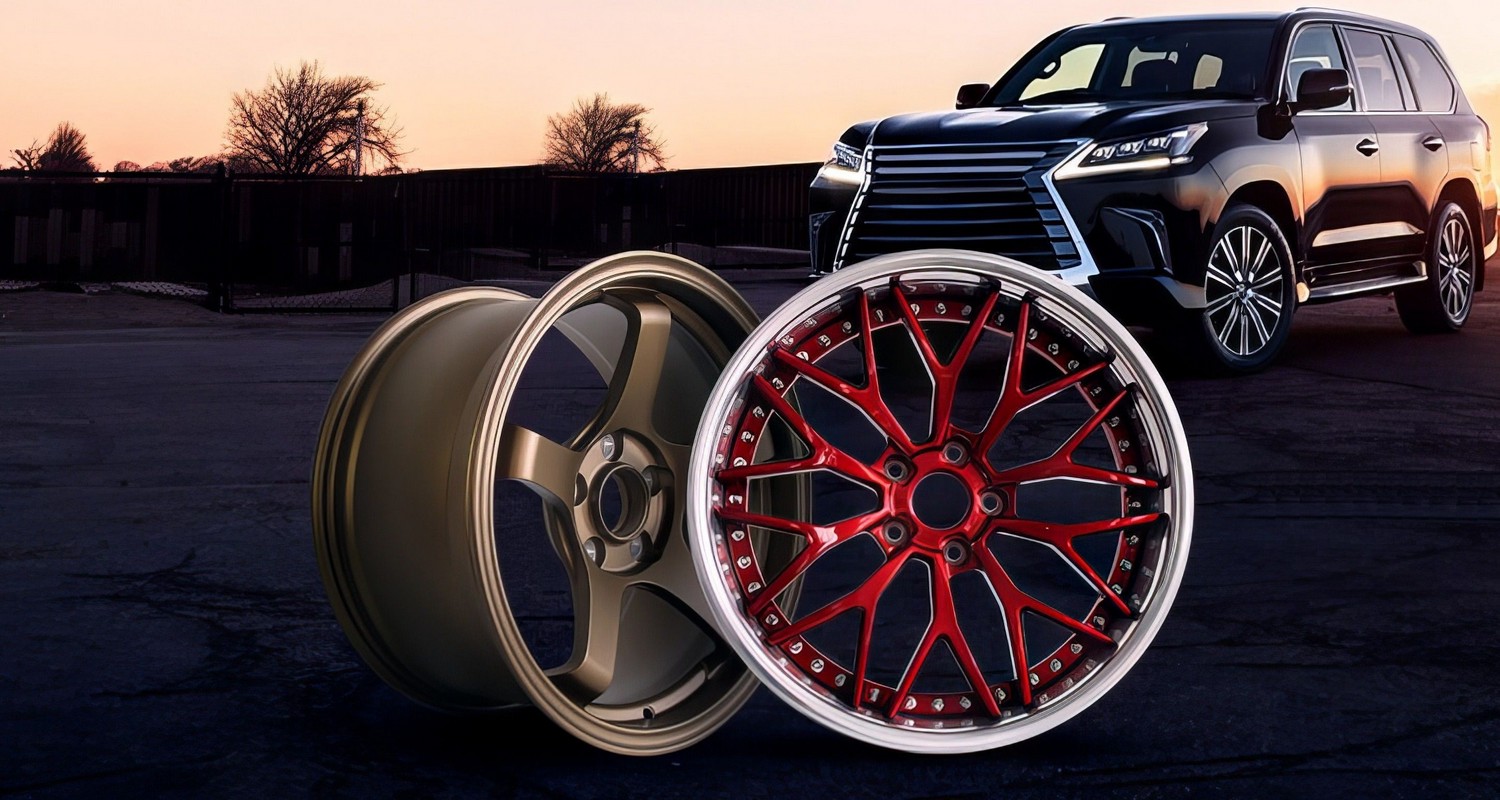
Among car owners do not subside disputes about what wheels are better to put on the wheels — cast or forged. Each type has both defenders and opponents, and around each of the same created a lot of speculation. For example, the spread of the myth that the products differ in materials, which is fundamentally wrong. About the features of cast and forged wheels and selection criteria tell the experts of the company Renegade Design, specializing in the manufacture and installation of tuning kits premium class, including wheel rims.
What are the similarities between forged and alloy wheels?
Although alloy and forged rims differ even in appearance, they have a number of similarities. To the main similarities can be attributed — material, shape and configuration, range.
Previously, wheel rims were made of steel, but then there were many alloy materials based on aluminum and magnesium, which quickly took the leading position. For the production of cast and forged rims, aluminum alloys with the addition of the same magnesium are most often used. Copper and manganese can be used as additional additives. Aluminum itself is a light metal, melts and cools quickly, and can be processed well. Magnesium improves the strength characteristics of the alloy, while copper improves ductility. Although each brand has regulated proportions, each manufacturer creates its own recipe, which is a trade secret. That is why products of different brands with the same technical and physical parameters can differ in performance properties.
Both cast and forged rims have the same basic shape, the location of key mounting holes and functional protrusions, which are necessary for connection with the hub and fixing the tire on the rim. This factor entails the uniformity of markings and the possibility to replace one rim with another without the risk of making a mistake.
Another unifying point is the availability of a wide range of models among both cast and forged wheels. Manufacturers strive to improve not only the operational or aesthetic properties of products, but also to facilitate the process of mounting/dismounting, so every year new varieties of wheels are released on the market.
Manufacturers produce specialized catalogs, which have all the necessary data on the types and markings of wheels, which allows you to navigate quite confidently among the many models and choose the best option for a particular car.
How forged wheels differ from cast wheels
Production method. To produce a cast rim, molten metal is poured into molds and allowed to cool down, after which the blanks are processed on various machines — machined, holes are made, constructive bends, protrusions, ledges, etc. are added. The final stage may be the application of paint and varnish coating. Casting wheels does not require expensive and bulky equipment, is carried out in several steps, does not take much time. These factors affect the cost of production, products are many times more expensive than forged analogs. But there are also disadvantages. The most serious of them is a granular structure with an abundance of air microbubbles, which reduces the strength of the rim. Parts are subject to the formation of cracks, deformations. To compensate for this disadvantage, manufacturers are forced to increase the thickness of the product, and this, in turn, leads to an increase in weight and load on the chassis.
An alternative is forged wheels, although the name does not quite correctly reflect the process of their manufacture. It is rather not forging, but hot stamping in a closed mold. Molten metal is first poured into cylindrical molds, obtaining a kind of columns. They are allowed to cool and sawed into washers. Then the blanks are heated and sent under a hydraulic press, where the washers are turned into flat wheels. With the help of various nozzles, the wheels are given the desired shape, most resembling a pot with a rim. Due to repeated exposure to the metal structure and its «stretching», graininess is replaced by fibrousness, and the powerful pressure provides a denser and stronger texture, without excess air. As a result, forged wheels are able to withstand increased loads. The resulting blanks are sent to a milling machine, where they are given a specified design, mounting holes, stiffening ribs, etc.
Weight. Forged wheels are much lighter than cast wheels, as the metal becomes denser and stronger during the production process, and there is no need to thicken the walls of the rim. In addition, stamping makes it possible to obtain a thinner profile of products than with casting. Two wheels with the same size can have a difference in weight of 3-4 kg.
Cost. Hot stamping of wheels requires the installation of a special production line, a powerful hydraulic press, expensive processing machines with program control. The process itself is considered very resource-intensive, including time, which affects the price: forged wheels are almost twice as expensive as cast wheels.
Pros of alloy wheels
- Low price, which is explained by simple production technology.
- Attractive appearance. Cast products are easier to process on lathes, which allows you to diversify the design.
- Low weight (especially compared to factory stamped steel wheels).
- Corrosion resistance. Light alloy materials based on aluminum and magnesium successfully resist oxidation processes.
- High thermal conductivity. Heat transfer reduces the load on the wheels and chassis.
Cons of cast wheels:
- Not very durable. Can split from the impact, cracks and chips are easily formed. The latter lead to violations of wheel balancing, damage to the rubber, reduced safety.
- Complex repair. Restoration of a deformed or cracked cast rim is more difficult and expensive than a forged rim.
Pros of forged wheels
- High safety margin.
- Low weight. Forging weighs almost half as much as stamped steel wheels, and a third less than cast wheels. This leads to reduced load on the chassis.
- Resistance to corrosion and the effects of road reagents.
- Plasticity. The fiber structure improves the flexibility of the metal, so in a strong blow the rim is more likely to bend than crack.
- Inexpensive to repair. Small deformations that may occur during use or in a traffic accident are eliminated by rolling on the machine, which are available at most service stations.
Cons of forged wheels
- High cost due to complex production.
- Limited assortment. Forged wheels are produced in relatively small batches or are made to order.
How to distinguish a forged rim from a cast one?
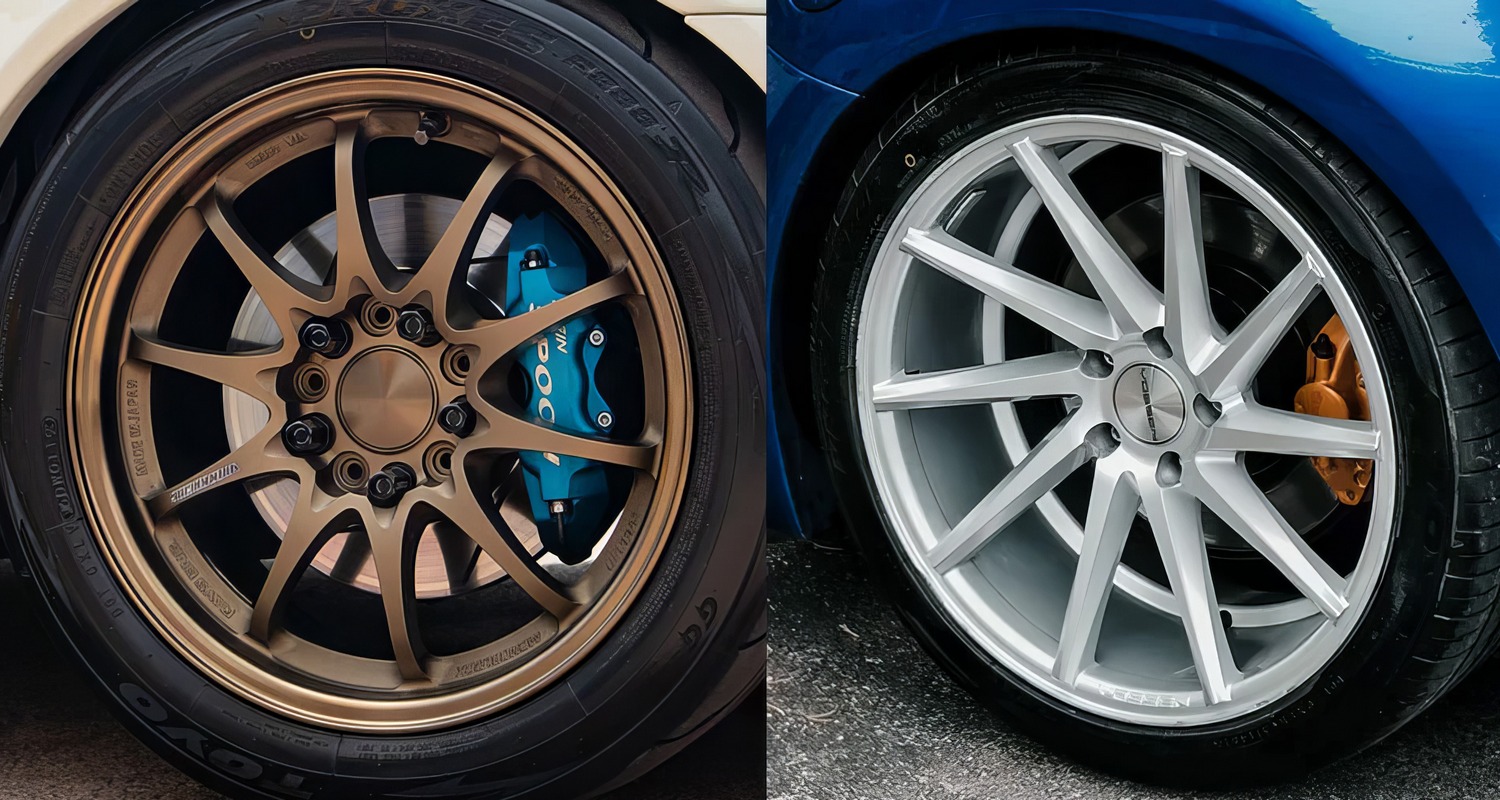
First of all, you can pay attention to the markings. Forged products are labeled with the word FORGED, cast — CAST. And here, too, there are peculiarities. Stamps that are used in the application of marking, have different relief, so the inscription FORGED is recessed, counter-relief, and CAST, on the contrary, convex, clearly visible to the touch.
When inspecting forged wheels, their edges and back side may show traces of post-processing on a lathe or grinder. The edges of a cast rim have a rounded, melted appearance. The material itself looks airy, more «inflated». In addition, cast wheels have a thickened rim with a width of at least 6 mm, while forging has a rim thickness of 3 mm.
Which wheels to choose: forged or cast
There is no unambiguous answer to this question, since the modern market offers a huge range in any segment, from budget to premium. At the same time, even within the same group, the technical characteristics and operational properties of products can differ significantly depending on the manufacturer. It is impossible to give an objective assessment by one indicator, we have to focus primarily on such parameters as durability, dynamics, reliability and safety.
Cast wheels have a low cost, low weight and attractive appearance, but their disadvantages are also quite obvious. They are heavier than forged on average by 3-4 kg, which leads to an increase in the unsprung weight of the car, and this is fraught with premature wear of the suspension, increased fuel consumption, reduced maneuverability and comfort. Manufacturers are trying to reduce the weight of the rim through additional holes, but this still does not solve the problem. Another disadvantage of «casting» — poor frost resistance, low temperatures have a detrimental effect on the metal with a granular structure, it becomes brittle.
Forged wheels are considered more durable, but the same factor becomes a disadvantage, since the shock load passing through them affects the suspension itself, accelerating its wear. But they are easier to repair, and the low weight provides a smooth ride, lower fuel consumption and fast speed gain. A serious disadvantage is the high cost of products, especially when it comes to buying a complete set. And although forged wheels have proven themselves in off-road and adverse weather conditions, cheaper cast wheels are still in high demand.
If it is assumed that the vehicle will be used in the conditions of the middle strip and only on asphalted roads, and appearance is not important, then mass-produced cast wheels look like the best option. But if you want something original and reliable, forged products have the advantage. Only it is better to put them on cars with reinforced suspension. When choosing wheels, it is imperative to take into account the seating diameter, rim width, size and configuration of mounting holes, rim outreach (affects the width of the track), maximum load.
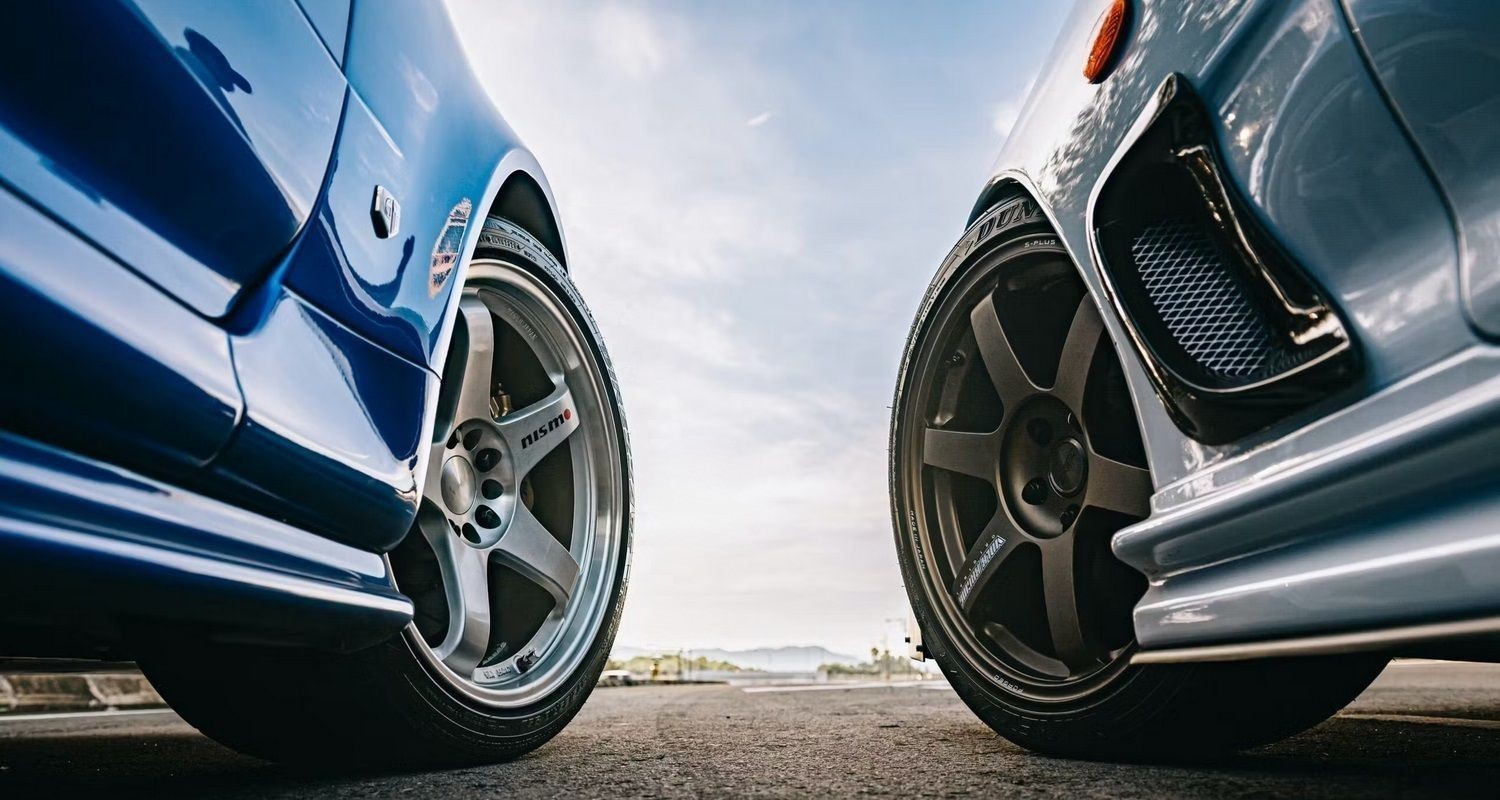
Renegade Design offers forged rims from 20 to 24 inches in premium quality. Our in-house production allows us to produce rims both according to existing templates and individual designs from the customer. You can add originality to the discs with the help of color painting (the constantly updated color range offers great opportunities in this regard), laser or mechanical engraving. Each product undergoes multi-stage quality control, we guarantee the durability and reliability of our wheels. In addition to manufacturing and installation of wheels, Renegade Design company is engaged in professional tuning of premium cars. We create unique dodger kits for such brands as Maserati Levante, Porsche, Lamborghini, Rolls-Royce, Mercedes Benz, Audi, BMW, Land Rover, Jeep, Toyota, Infiniti and others.








